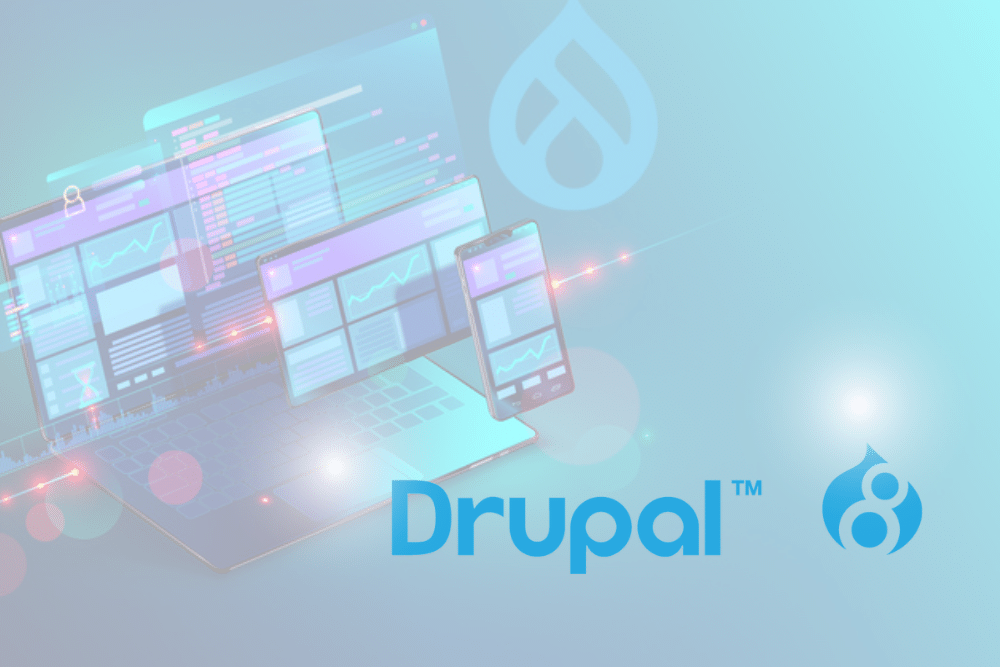Let’s talk about Drupal 8 and why it’s better.
The web industry has really brought open source (OS) software to the mainstream. No longer is “open source” seen as just a basement project of some tech junkies. Today it’s dominating the web market, and Drupal has shown us why that’s the case.
We sat down with Richard Spring, Catalyst IT Australia Drupal Team Leader to unpack ‘why Drupal’ and its latest improvements.
Is Drupal really the best experience platform (DXP) on the web?
Many would argue so. As a modern framework, Drupal allows developers to build all sorts of web-based digital experiences, from simple catalogue-style websites, to powerful eCommerce platforms; and from sophisticated government portals to complex intranet systems.
“Being an open source software, Drupal allows for collaborations and valuable contributions not possible in the proprietary space,” says Richard.
“Currently, the Drupal community has over 7,000+ contributors adding to the project’s continuous improvement.”
“Note, I’ve avoided using the word ‘developer’ here, since contribution to the project comes in many ways and from many skill sets, not just from coding.”
“In fact, the way that the community functions, and how it adapts and learns to the needs of modern society, is perhaps the most determining factor in the success of an open source project.”

And Why OS and business resilience go hand in hand.
Click to read >
To avoid sounding bombastic, let’s talk about some of the real world benefits of OS projects such as Drupal.
Many companies or solo developers contribute to Drupal by building modules to fulfil a certain need or to add a new feature. With over 43,000 free Drupal modules available, it’s highly likely that a module already exists for any one of your project’s requirements.
“But it’s not all about quantity,” says Richard.
“The quality of existing code is incessantly scrutinised and improved in all corners, including performance, security, styling, function and fixing bugs. These improvements can then be rolled out to your existing site by means of Drupal core and contrib module updates. And that’s just day-to-day contributions, in addition to the regular formal upgrades.”
From Drupal 7 to Drupal 8 – Scalability, Security and Performance Improvements.
From Drupal 7 to Drupal 8 we saw a massive jump in the project’s underlying architecture. So rather than becoming stuffy, outdated, or arcane, Drupal has kept itself on the cutting edge of the web industry.
“This has allowed it to be extremely scalable and extensible,” says Richard, “which means that new features can be added without needing to redesign or restructure the existing system.”
Drupal 8 Security
The modern architecture has also allowed Drupal to be considered much more robust and secure than other Content Management Systems such as WordPress. Since Drupal 8, the amount of total site infections is decreasing, to 1.28% in 2019 compared to 94% of WordPress in that same year.
Drupal 8 Performance
The updated architecture has also improved Drupal’s performance. It’s much smarter when it comes to caching. It ‘knows’ which content can be cached and when to cache it, providing advanced caching for delivering pages quickly with less server load.
Are there any other important benefits of Drupal 8?
“One of the major benefits brought by Drupal 8 is that major version upgrades are now incremental,” says Richard, “requiring mostly minor updates to contributed or custom modules.”
“So, for example, an upgrade from Drupal 9 to Drupal 10 won’t require a complete rebuild; the code and database will remain almost entirely the same.”
“There is so much more to Drupal and all the great things it does, and things I love about it,” says Richard, “its plugin system, Entity API, content workflows, SEO tools, integration with other systems and more.”
“So if you have any questions on any of the above and Drupal more broadly, please reach out.”
“For now, I’ll just leave you with this photo from the Drupal South 2022 conference in Australia last month which spotlighted the passionate community that makes Drupal great.”
Pictured below is the “Code Sprint” session where contributors from around the world got together and pumped out code to make Drupal even better!

Have more questions about Drupal?
